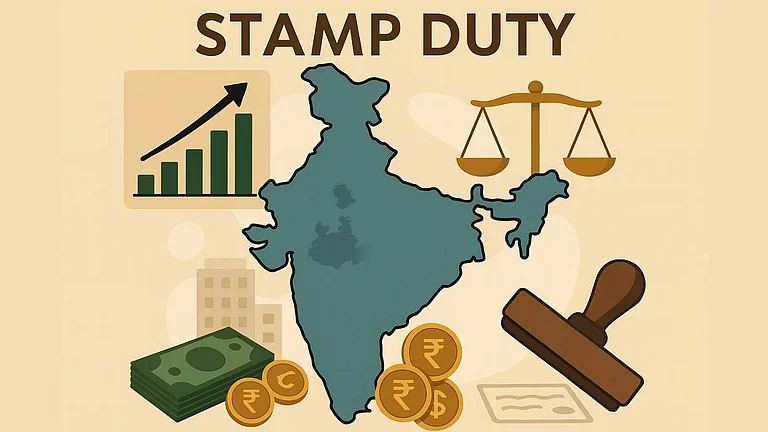When a job posting shifts overnight or a family emergency demands sudden relocation, a renter's home no longer stays just a shelter it becomes a liability. A long-term rent agreement signed in good faith turns into a complication, especially when the calendar still shows months left on the lease. But even under unforeseen pressure, does a tenant have to lose their security deposit to break free?
The answer is legally, no.
Most rental agreements in urban India include termination clauses. They often sit buried in legalese and are overlooked during move-in documentation. However, for tenants today especially those hit by layoffs, rising rents, or health crises these clauses can become their exit strategy.
Notice Clause
In many standard lease agreements, a one- or two-month notice clause serves as a built-in termination buffer. For renters who serve this notice period formally, with documentation the law typically allows for full refund of the security deposit, unless the agreement says otherwise. That's the first step. Reading, then re-reading, the lease matters.
Yet even here, landlords sometimes slip in conditions. Tenants may find deductions for repainting or utility adjustments.
Subletting Or Finding a Replacement
Another route is to locate a replacement. Subletting or re-letting is common in metro cities where tenant turnover is high. WhatsApp groups, housing forums, and tenant networks frequently help renters connect with people looking for immediate occupancy.
But here's the caveat: subletting without a landlord's written approval is often illegal. Most lease agreements prohibit it, or at least require explicit permission. In cities like Bengaluru or Pune, where tech professionals often rotate in and out of housing contracts, some landlords are open to this flexibility. Others are not.
There's also the structural distinction between re-letting and subletting. In re-letting, the original agreement is terminated, and a new one begins with a new tenant. In subletting, the agreement stays under the original tenant's name, and the incoming person essentially "borrows" the space. Both carry implications financial and legal.
Mutual Termination
Sometimes, legal clauses matter less than human conversation. A tenant facing genuine hardship might choose to speak directly with the landlord. It's not a legal requirement, but it's a practical strategy.
Many landlords, particularly individual owners rather than institutional landlords, are open to negotiation, especially if approached respectfully and early. Transparency helps.
An adversarial stance rarely ends well. Tenants who leave abruptly or skip rent often face penalties worse than just forfeiting their deposit, legal notices, civil recovery claims, or even being blacklisted in housing associations.
Grounds of Landlord Negligence
In some cases, tenants aren't fleeing but reacting to mould-infested walls, repeated electrical issues, or security lapses. Here, the grounds for early termination rest on the landlord's failure to uphold contractual responsibilities.
Those types of lapses, if enumerated in the lease under either maintenance, repair, or basic habitability, the tenant can give a notice of default if it goes unremedied. This has to be well-documented, typically in communication such as written reminders or repair logs. If the landlord continues to do nothing, the tenant can leave, and with legal cause (a breach of contract), place themselves in the position to get their deposit back.
Legal Framework
India lacks a uniform rental law across states, but some protections are available under the Model Tenancy Act, 2021. Adopted language varies from state to state, but the framework is meant to dissuade exploitative terms and encourage transparency on the conditions of the rent, lease duration and deposit.
Most importantly, the Act restricts deposits to two months' rent for residential properties (and six for commercial) helping tenants to keep a bit of cash off limits. It also demands reasonable grounds for deduction, besides introducing mechanism of redressal of any dispute.
However, implementation is still pending in several states. Until then, city-wise rent control acts and individual lease agreements remain the governing instruments.
For tenants staring at premature lease exits, the message is this: know your agreement, follow the legal steps, and document everything. Serving notice, securing landlord approval, and mutual discussion aren't just good-faith gestures. They are tools to safeguard your financial interest.
Leaving a rented home doesn't have to necessarily mean leaving behind a hard-earned deposit. With careful steps, and a fair understanding of rights, renters can exit with dignity and with their money intact.














